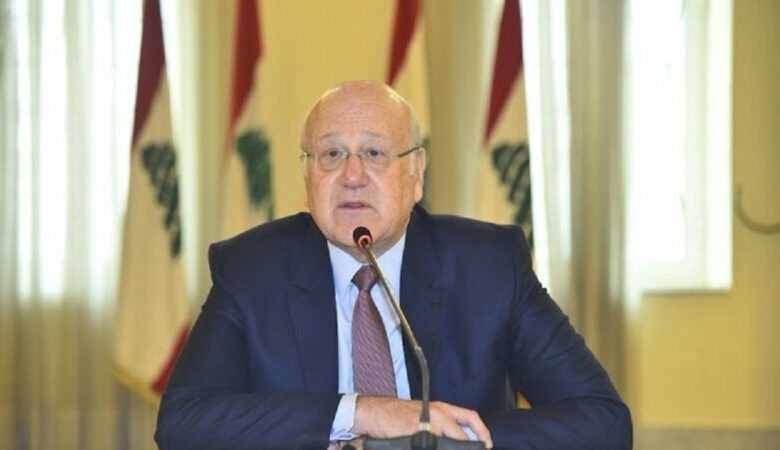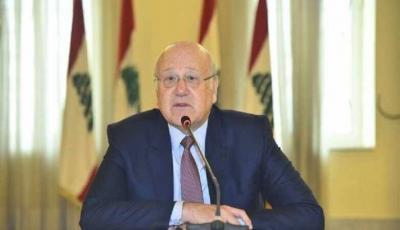The prospects of reassigning President Najib Mikati to form the first government following the 2022 parliamentary elections, and the last government during President Michel Aoun's term, appear high, as political and diplomatic circles anticipate the commencement of the government assignment and formation process parallel to vital talks to be conducted by the American mediator in the maritime border demarcation file between Lebanon and Israel, Amos Hochstein, today and tomorrow in Beirut. Following a tumultuous week of debate and media noise surrounding the perplexing Lebanese scene regarding the demarcation file—especially after Hezbollah's Secretary-General Hassan Nasrallah preempted the official stance that would be communicated to Hochstein and issued threats to target the gas extraction platform in the Karish field—indications emerged, the evening before the American mediator's visit, from the three presidential offices indicating that a unified Lebanese stance will be conveyed, and coordination is ongoing among officials regarding this national and strategic file.
As for the government assignment and formation process, there are still no solid data regarding the path things will take, but it seems that determining a date for the binding parliamentary consultations at Baabda Palace will not be delayed much longer, especially after rising criticisms and accusations directed at the presidency and its leader, Gibran Bassil, of deliberately delaying the consultations for reasons related to the composition and portfolios of the new government. While no fixed names have yet solidified for government formation, it was noted that Mikati's prospects remain strong among the proposed names, and it is likely that the date for the consultations will be set for the middle of this week, according to "An-Nahar." There appears to be a clear trend among some traditional political blocs in naming President Mikati.
Sources from the change bloc deputies confirmed to "Al-Liwaa" that they met last night to consult and will convene today, Monday, to decide, but they emphasize their criteria that they will not name anyone from the traditional forces and that their candidate should be a person of expertise and sufficient trust, familiar with administrative work, and importantly, not associated with the power mafia. Sources familiar with the Shiite duo's atmosphere stated to "Nidaa Al-Watan" that Hezbollah's position and that of House Speaker Nabih Berri still lean towards Mikati as a choice to navigate the final period of the mandate, especially since the duo shares a relationship of understanding and agreement with him, in addition to a friendly personal relationship with President Michel Aoun.
The sources clarified that Mikati's option is advanced over others in principle, but it has not yet been matured, firstly because he is not willing to return just any way and has his conditions, and secondly because those who will cast votes for him are not ready to do so for free; they want an understanding on the features of the upcoming government. Among those top of mind is the head of the Free Patriotic Movement, Deputy Gibran Bassil, who demands a political government.
It seems that the President is still hesitating to call for binding parliamentary consultations until after the end of the visit by the American envoy. Well-informed sources told "Al-Jumhouria" that linking this constitutional entitlement to such developments is entirely unjustified, mainly because discussions are still ongoing regarding the form of the government—whether it will be composed of technocrats to be a revised version of the current caretaker government, or politicians, which implies difficulty in reaching the presidential entitlement, a matter that ongoing negotiations on multiple levels have not settled. However, political sources expected that Aoun would link the call for parliamentary consultations to achieving a minimum level of necessary consensus regarding the identity of the person who will be tasked with forming the new government, noting that if Aoun calls for consultations without any prior preparation, as some demand, the outcome will be that each parliamentary bloc will resort to individual pitches and propose its candidate, amid the fragmentation of the new council into a group of scattered forces, thus no name will gain a significant or suitable majority to allow it to embark with momentum on forming the government. These sources stated to "Al-Jumhouria" that it is necessary to reach intersections between some fundamental blocs regarding the identity of the person entrusted with the formation process because the sensitivity of the phase cannot bear the consultations becoming a field for experiments.




